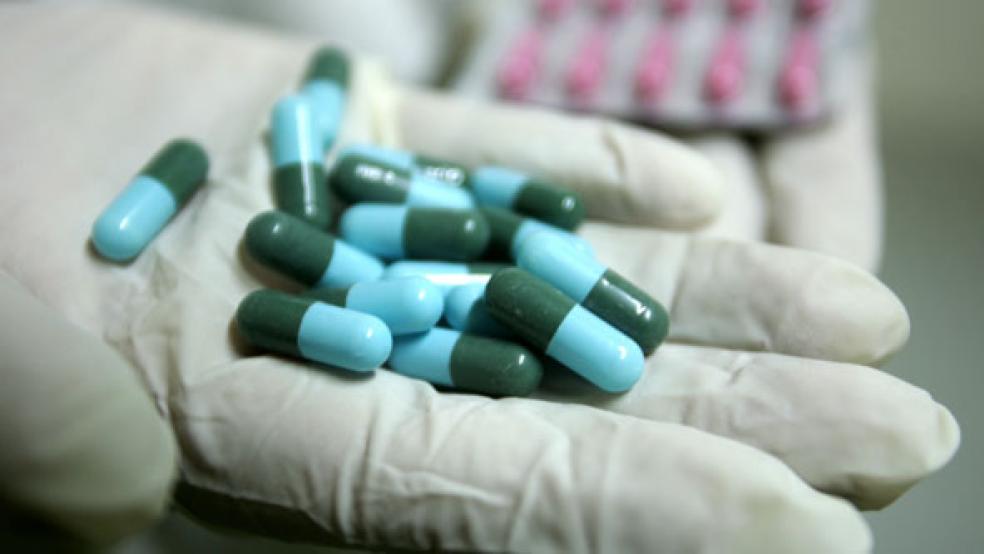When you fill a prescription or buy medicine over the counter, you have assurance from a power federal agency that the product is not only safe, but that it will do its intended job. But like other watchdog regulatory agencies, the Food and Drug Administration operates with fees collected from the very companies it is mandated to scrutinize. It’s the old adage of the fox guarding the hen house.
User fees are the bane of regulatory agencies in charge of areas of broad public concern — like the safety of nuclear power plants or public health. Being financially dependent on the very firms it is supposed to oversee can cloud an agency’s judgment, critics charge.
The FDA is responsible for ensuring the safety and effectiveness of food, drugs, medical devices, biologics, cosmetics, pet foods and medicines, and most things sold over-the-counter in drug stores (except dietary supplements, which get a free pass from effectiveness standards). The agency is also supposed to keep track of the manufacturing and marketing of these products, since we don’t want the airwaves turned into the latter-day equivalent of 19th century carny barkers selling “patent medicines.”
To fund this overwhelming task — which if not done well jeopardizes the health and safety of every American — Congress appropriates a grand total of $2.5 billion, about $8 per person per year. I will spend more this afternoon for a lunch salad than the FDA receives in my name to ensure the lettuce in that salad is free from e coli. Even as it heaped new responsibilities on the agency, Congress consistently shortchanged its appropriations. Legislators from both political parties instead turned to user fees to fund the agency, which came with strings attached.
Expedited Review — For a Price
In 1992 Congress passed the Prescription Drug User Fee Act, which exchanged industry fees paid with each new drug application for faster review times. In 2002, the folks on Capitol Hill repeated the trick with the Medical Device User Fee Act. Again, small fees paid with submission of each new device application exacted a promise that reviews would speed through the agency.
And there’s more coming. In its request to Congress this year, the Obama administration sought new user fees, one for generic drug applicants and three for food processors to cover the cost of inspections. User fees will surpass $600 million a year in agency funding if the administration gets its way.
“We don’t like user fees,” William Vaughan of Consumers Union told the FDA’s first hearing on reauthorization of medical device user fees, which was held last week. It wasn’t hard to see why after listening to the FDA and industry officials at the sparsely attended hearing.
“The essence of the program,” assistant commissioner for planning Malcolm Bertoni said, “is user fees for enhanced performance.” He offered an array of statistics to show that the agency was meeting performance goals of faster review times, even as the number of new device applications surged.
Industry, which pays the tab, still wasn’t satisfied with the agency’s performance. Mark Leahy, president of the Medical Device Manufacturers Association, charged that review times have been increasing since 2005, and complained about the FDA’s “confrontational and adversarial” attitude when dealing with applicants.
Those comments were echoed by Janet Trunzo, vice president for regulatory affairs at Advamed, which represents large firms in the device industry. She noted the time that “sponsors have had to spend in responding to FDA requests for additional data has nearly tripled.”
Consumer and physician groups had a very different outlook on agency performance, and ignored the agency’s injunction to forego policy discussions. “We have great concerns about the levels of evidence” generated by the current safety and efficacy standards, said Janet Wright, vice president for science and quality at the American College of Cardiology. “User fees have to be used to get the quality of reviews we need.”
Beyond Speed: Other Performance Factors
“There are lots of other performance standards other than speed,” said Diana Zuckerman, president of the National Research Center for Women and Families. High on her list: comparative clinical trials so consumers know how well new devices work compared to older devices already on the market. She also called for a product identification system to facilitate recalls — a frequent occurrence for medical devices. “I have a unique identifier for my DVR and for my toaster, but not for the artificial hip that’s inside my body.”
There doesn’t have to be a trade-off between safety and speed or information and speed. But that will require a different mindset in Congress, which sets the rules of the road for federal regulatory agencies.
At the FDA, Congress should establish clear requirements that new product submissions, including those that are variations of existing products, include adequate data with which to judge their safety and comparative effectiveness. And then they need to give the FDA the resources it needs to judge those submissions on a timely basis. What’s true for devices is just as true for generic drugs, food and brand-name drugs.
User fee-driven pay-for-performance schemes are no way to run an agency responsible for public health and safety.





